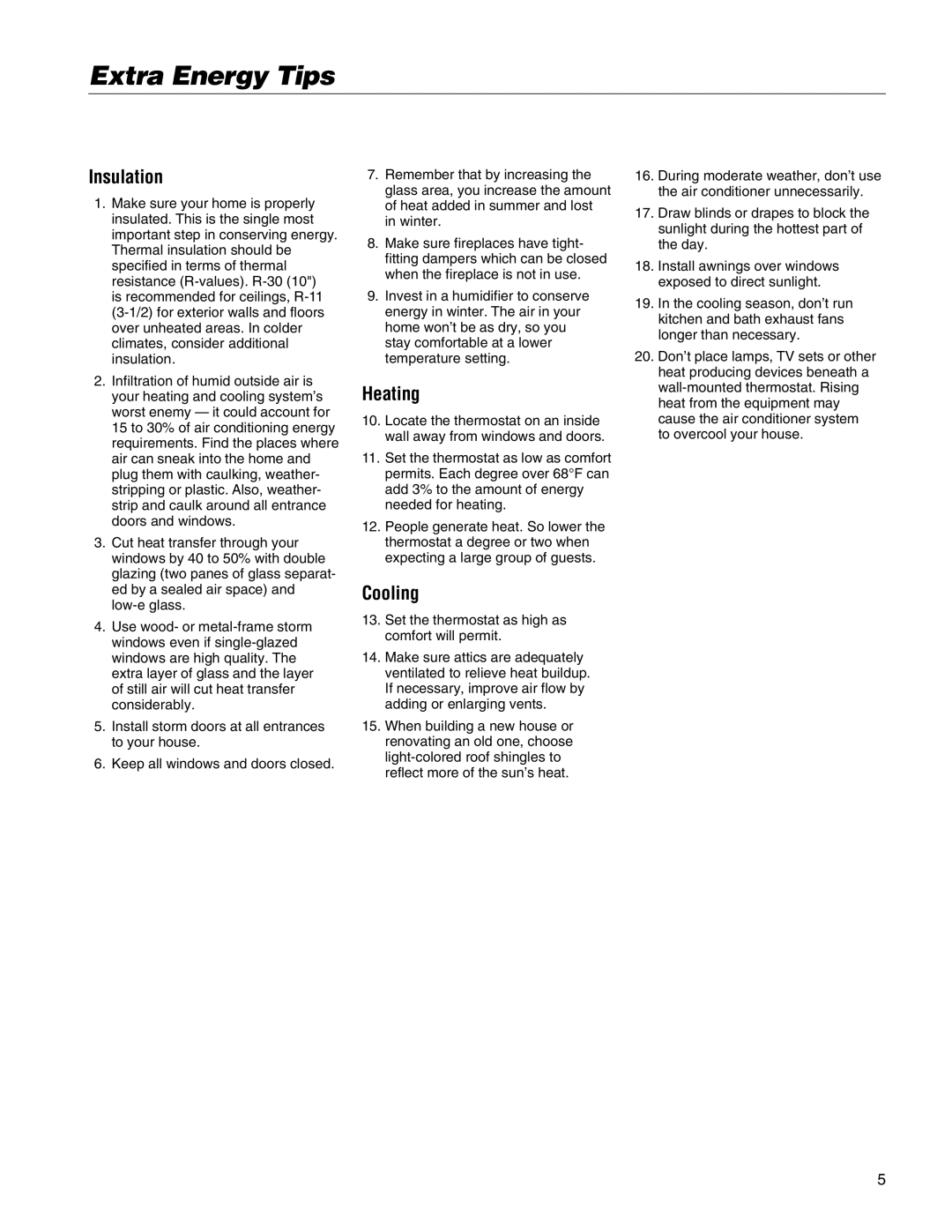Extra Energy Tips
Insulation
1.Make sure your home is properly insulated. This is the single most important step in conserving energy. Thermal insulation should be specified in terms of thermal resistance
2.Infiltration of humid outside air is your heating and cooling system’s worst enemy — it could account for 15 to 30% of air conditioning energy requirements. Find the places where air can sneak into the home and plug them with caulking, weather- stripping or plastic. Also, weather- strip and caulk around all entrance doors and windows.
3.Cut heat transfer through your windows by 40 to 50% with double glazing (two panes of glass separat- ed by a sealed air space) and
4.Use wood- or
5.Install storm doors at all entrances to your house.
6.Keep all windows and doors closed.
7.Remember that by increasing the glass area, you increase the amount of heat added in summer and lost in winter.
8.Make sure fireplaces have tight- fitting dampers which can be closed when the fireplace is not in use.
9.Invest in a humidifier to conserve energy in winter. The air in your home won’t be as dry, so you stay comfortable at a lower temperature setting.
Heating
10.Locate the thermostat on an inside wall away from windows and doors.
11.Set the thermostat as low as comfort permits. Each degree over 68°F can add 3% to the amount of energy needed for heating.
12.People generate heat. So lower the thermostat a degree or two when expecting a large group of guests.
Cooling
13.Set the thermostat as high as comfort will permit.
14.Make sure attics are adequately ventilated to relieve heat buildup. If necessary, improve air flow by adding or enlarging vents.
15.When building a new house or renovating an old one, choose
16.During moderate weather, don’t use the air conditioner unnecessarily.
17.Draw blinds or drapes to block the sunlight during the hottest part of the day.
18.Install awnings over windows exposed to direct sunlight.
19.In the cooling season, don’t run kitchen and bath exhaust fans longer than necessary.
20.Don’t place lamps, TV sets or other heat producing devices beneath a
5
